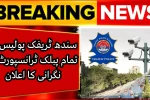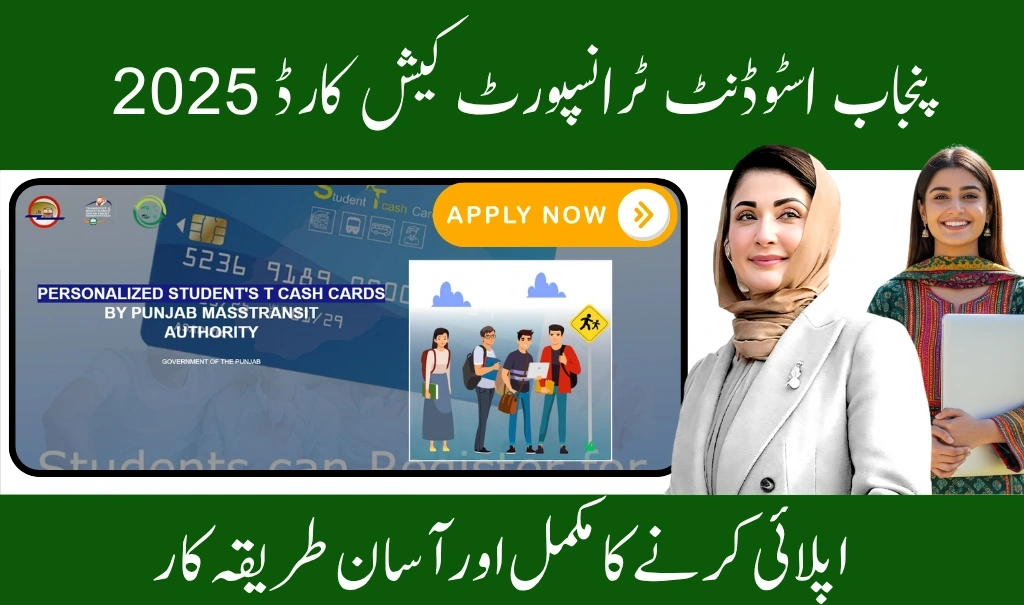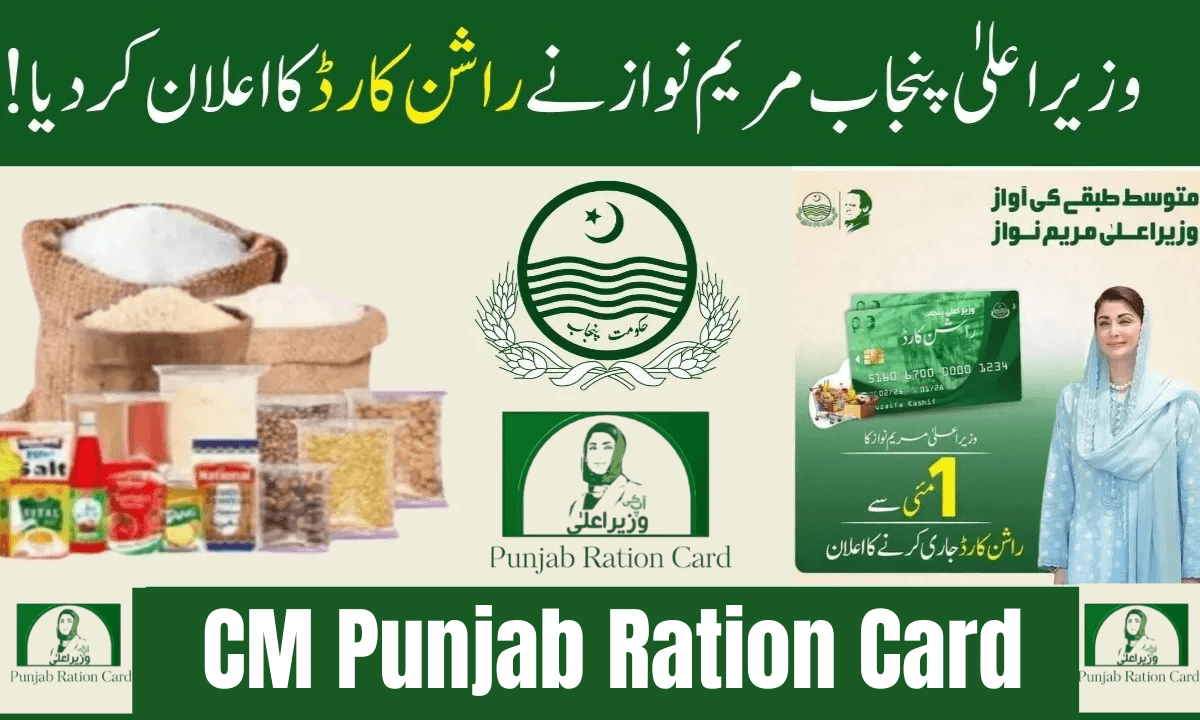How Much Money Can Students Save with the T-Cash Card? Transportation is one of the biggest daily expenses for students in Punjab, particularly in large cities such as Lahore, Rawalpindi, and Multan. With rising fuel costs and the continuous increase in public transport fares, many students are forced to spend a major portion of their monthly allowance or family budget just to travel to and from their educational institutions. This expense has always been a challenge for low and middle-income families, but the introduction of the Punjab Government’s T-Cash Card is set to change that scenario.
This transport card provides either free or heavily discounted travel facilities for students across different modes of public transport. The scheme has been designed not only to reduce the financial burden on households but also to encourage regular attendance at schools, colleges, and universities. The question is: how much can students really save with the T-Cash Card?
Average Daily Transport Costs for Students
To understand the value of this initiative, it is important to first look at how much students currently spend on their daily travel. Depending on the mode of transport, a student may pay anywhere from PKR 50 to PKR 150 each day. This means that in a month of around 20 school days, the expense can easily range between PKR 1,200 and PKR 3,000.
For example, local buses usually cost between PKR 50 and 80 per day, which adds up to PKR 1,000 to 1,600 per month. Metro bus fares are slightly higher, with round trips costing between PKR 60 and 100 daily, totaling PKR 1,200 to 2,000 monthly. Students who depend on vans or rickshaws, especially those traveling longer distances, often spend PKR 100 to 150 per day, which can rise to PKR 2,000 to 3,000 monthly. For many families, this amount is almost equal to or greater than other essential household bills.
How the T-Cash Card Reduces Costs
The T-Cash Card is specifically introduced to tackle these expenses. In most cases, the card allows students to travel for free on selected routes. In other areas, instead of free rides, a discount of 50 to 70 percent is applied on fares. Either way, the reduction in monthly expenditure is substantial.
For instance, a student who spends around PKR 1,800 every month on metro bus fares will save the entire amount if rides are free. Even with a 60 percent discount, their cost would come down to just PKR 720 per month. A student who relies on a combination of vans and buses might normally spend PKR 2,400 monthly. With T-Cash, this drops to zero in the case of free rides or just PKR 960 with discounts. Similarly, those using mixed public transport worth PKR 3,000 a month would either save the whole amount or pay only PKR 1,200.
This means that students can save up to PKR 3,000 every month and more than PKR 30,000 annually. Families with multiple children studying in schools or universities will see even bigger relief as their total transport costs may be cut by half or removed entirely.
Why These Savings Matter for Students
For many students, transportation costs are not just a financial issue; they directly affect education. Students from low-income households often skip classes or even discontinue their studies because they cannot afford daily travel. The T-Cash Card effectively removes this barrier by ensuring that transport expenses are no longer an obstacle to learning.
Regular access to free or discounted travel encourages daily attendance, reduces absenteeism, and allows students to focus more on their studies rather than worrying about how to afford the next bus or van ride. Parents also benefit by feeling less financial pressure, which helps them allocate their limited income towards other essentials like food, books, and healthcare.
The scheme also promotes equality, as students from all backgrounds can enjoy the same facilities without financial discrimination. Saving even a small amount of PKR 50 to 100 daily translates into thousands of rupees annually, which is a meaningful difference for struggling households.
Who Benefits the Most?
The biggest beneficiaries of the T-Cash Card are students who travel long distances every day to attend college or university. Families with two or more children also gain significant savings as their combined transport costs are greatly reduced. The scheme is particularly helpful for students who depend on multiple modes of public transport, such as metro buses combined with vans or local buses. Most importantly, children from low and middle-income families, who often face the hardest challenges, now have a reliable and affordable way to commute.
Additional Benefits Beyond Savings
Apart from financial relief, the T-Cash Card introduces a new level of convenience and security. Students no longer need to carry cash every day, reducing the chances of money being lost or stolen. The card can be recharged and monitored digitally, offering transparency for both students and parents.
On a broader level, encouraging students to use public transport also helps reduce traffic congestion and pollution in big cities. It aligns with the government’s focus on sustainable urban development while providing a modern solution to everyday problems. By making commuting easier and more affordable, the T-Cash Card empowers students and supports their independence.
How to Apply for the T-Cash Card
How to Apply for the T-Cash Card
Applying for the Punjab T-Cash Card is simple and online-based:
- Visit the official portal: www.bikes.punjab.gov.pk or the T-Cash portal.
- Complete the application form with your personal details.
- Upload required documents:
- Valid CNIC/B-Form
- Student ID card
- Recent passport-size photo
- Submit the form and wait for approval.
- Once approved, your T-Cash Card will be issued and can be collected or delivered as per instructions.
FAQs – Punjab T-Cash Card for Students
1. What is the Punjab T-Cash Card?
The Punjab T-Cash Card is a smart transport card launched by the Punjab Government that allows students to travel on public transport either free of cost or at discounted fares.
2. Who is eligible for the T-Cash Card?
All school, college, and university students who are residents of Punjab and possess a valid student ID card along with CNIC/B-Form are eligible to apply.
3. How much can a student save with the T-Cash Card?
Depending on their daily travel, students can save between PKR 1,200 to PKR 3,000 per month, which totals up to more than PKR 30,000 annually.
4. Is the T-Cash Card valid for all transport modes?
The card is mainly valid on metro buses, local buses, and selected vans. Rickshaws and other informal modes of transport are not fully covered under the scheme.
5. Can multiple family members apply for the card?
Yes, each student in a family can apply individually. Families with two or more children benefit the most, as their combined savings can amount to thousands of rupees each month.
6. How do I apply for the T-Cash Card?
Students can apply online through the official government portal by filling in the application form and uploading their CNIC/B-Form, student ID, and a recent photograph. Once verified, the card is issued within a few weeks.
7. What should I do if I lose my T-Cash Card?
In case of loss, students can request a replacement card by reapplying through the official portal. A small replacement fee may be charged.
8. Is the T-Cash Card available in all Punjab cities?
Currently, the scheme is active in major cities like Lahore, Rawalpindi, Faisalabad, and Multan, with plans to expand to more districts in the future.
Conclusion
The Punjab T-Cash Card is more than just a student transport pass; it is a game-changer for thousands of families in Punjab. By cutting transport costs to half or even eliminating them completely, the scheme provides much-needed financial relief while supporting better access to education.
Whether you live in Lahore, Rawalpindi, or Multan, the savings are significant and the advantages long-term. If you haven’t applied yet, now is the perfect time. With just your student ID, CNIC or B-Form, and a photograph, you can register and begin your journey towards stress-free and affordable travel. The sooner you apply, the sooner you can start saving thousands of rupees every year while enjoying a smarter, more convenient way to commute.














